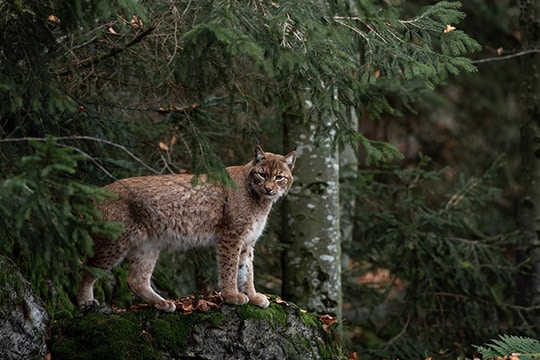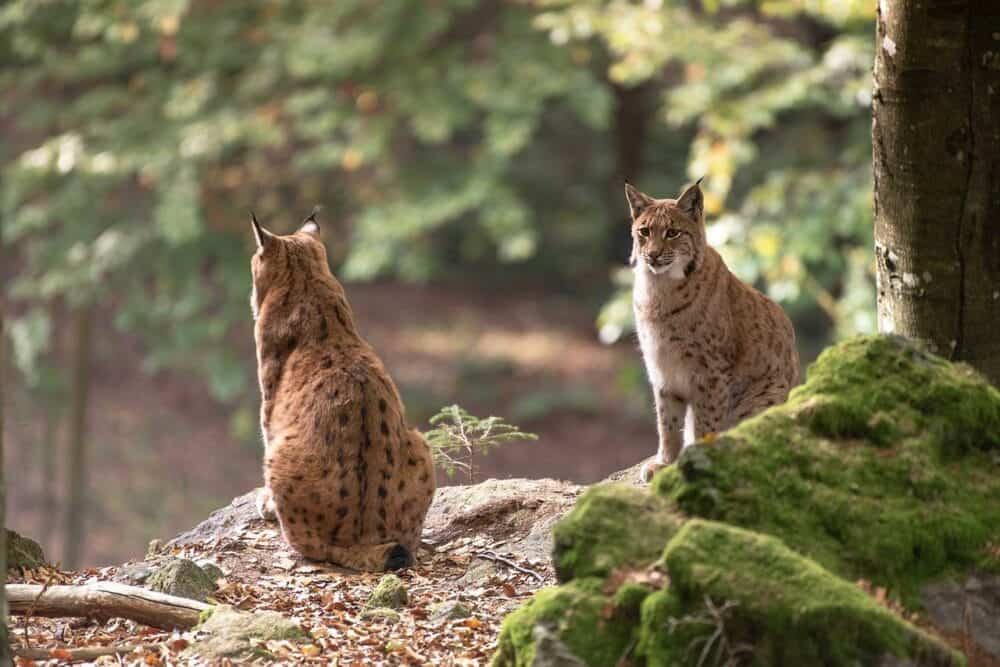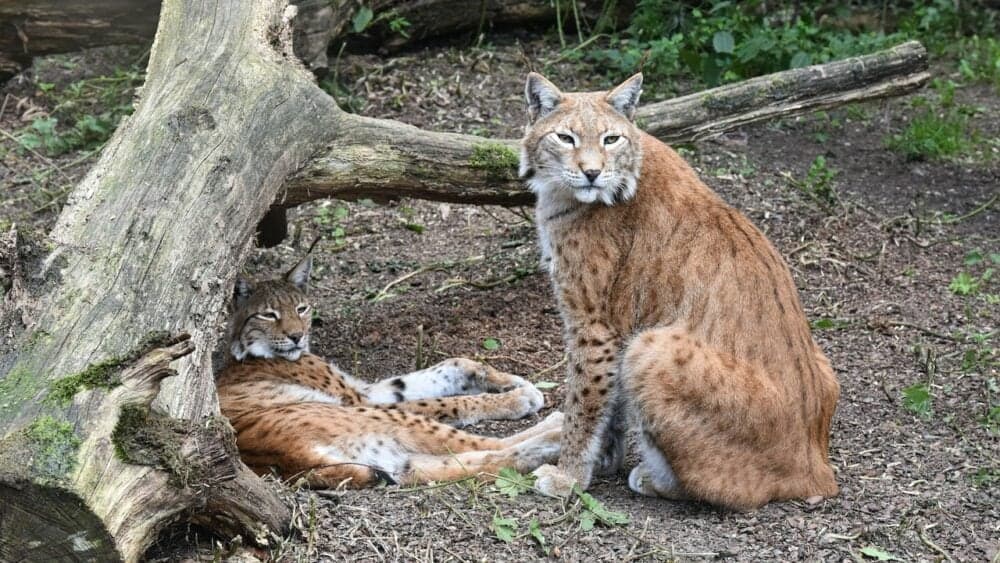Wild cats are a source of fascination for many people. With so many of these big cats on the prowl across the country, it makes sense. For the people in Rhode Island, however, knowing which big cats are hidden around them is important information. Oddly enough, contrary to popular belief, only 1 wild cat is pouncing through the woods in this state, the amazing Bobcat. Let’s learn a bit more about the Bobcat and why they call Rhode Island, and most of North America their home.

Bobcat – The Only Type of Wild Cat in Rhode Island

| Scientific Name: | Lynx rufus |
| Length: | 32-34 inches |
| Height: | 22 inches |
Bobcats are the only officially documented wild cat in the state of Rhode Island. This cat gets its unique name thanks to its bobbed tail and appearance. The Bobcat is the most widespread wild cat in all of North America. In Rhode Island, these cats survive on roadkill, small animals like squirrels, rabbits, ducks, and chickens that aren’t properly secured by their owners.
Luckily, for humans, however, Bobcats do not pose much of a threat and are considered very solitary animals that prefer to stay away from human contact. Hunting Bobcats is illegal in the state of Rhode Island. There are no active seasons for these animals, and it is considered illegal to have a Bobcat carcass or their fur in your possession in this state.
All About the Bobcat
As the only documented wildcat in Rhode Island, the elusive Bobcat is quite well known. This cat can be found in all 50 states in the US. Unlike some of the other big cats found in the United States, this cat has the uncanny ability to be able to adapt to an environment altered by humans. As long as they have a good source of food, a Bobcat can survive.
Characteristics
Bobcats like to make their moves during what is considered the twilight hours. You’ll see these cats hunting a few hours before dark, up until around midnight. Then you’ll see them back on the prowl a couple of hours before the sunrises. During the daytime hours, when Bobcats sleep, they use dens often made inside trees or within rocky crevices. Throughout their territory, which can cover miles, a solitary Bobcat can have several dens to use while they hunt. To mark their territory, Bobcats use their scent and their claws to place distinctive marks on trees to ward off other animals in the area.
Habitat

As one of the most adaptive animals in North America, the Bobcat can call lots of different terrains their home. Anywhere there’s a forest, a Bobcat can survive. These animals can do well in swampy terrain, mountainous areas, grasslands, shrublands, and even in agricultural areas. Like several animal species in the world, the biggest threat to Bobcat populations is the loss of habitat. In Rhode Island, it is common to find these wild cats on the side of the road when they have attempted to cross while hunting and have been hit by passing cars.
Feeding Habits
The Bobcat is known as an ambush predator. This means they carefully stalk their prey before they decide to pounce. These wild cats feed on rabbits, hares, squirrels, chipmunks, voles, moles, birds, and other small animals. They are also powerful enough to take down a white-tailed deer if they have the opportunity to find them at night when they are bedding down. A Bobcat can go long periods between meals yet doesn’t usually pose threats to humans.
Other Wild Cat Sightings in Rhode Island
While Bobcats are the only documented wild cats in Rhode Island, that doesn’t mean locals haven’t claimed they have seen other cats on the prowl. Over the past several years, people in the Rhode Island area have made reports of seeing mountain lions in the woods and on their properties. According to state officials, however, this simply isn’t the case. One sighting reported a killed deer. When officials from the Department of Environment Management checked into the claims, they announced that the deer was not killed by a mountain lion. State officials say the last confirmed sighting of a mountain lion in Rhode Island was in 1847. They do claim to investigate all reports made regarding these wild cats but haven’t found any evidence to prove their return to Rhode Island.

Conclusion
While the people of Rhode Island claim there are more wild cats in their area than state officials care to admit, the one cat definitely on the prowl is the illusive and magical Bobcat. These cats have a fierceness all their own. If you happen to encounter a Bobcat, be careful. While these wild cats aren’t normally threats to humans, with people steadily moving deeper into their territory anything can happen. When you see one of these majestic beasts, it’s best to watch them from afar and let them continue on their journey in life.
See Also:
- 3 Types of Wild Cats in Idaho (With Pictures)
- 7 Types of Wildcats in Texas (With Pictures)
- Wildcats In Indiana & Are There Any?
Featured Image Credit: detlef-bukowski, Pexels
